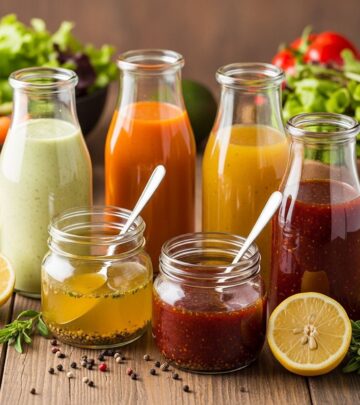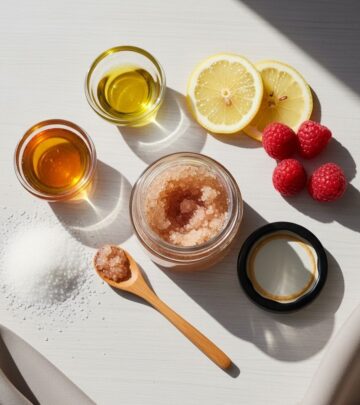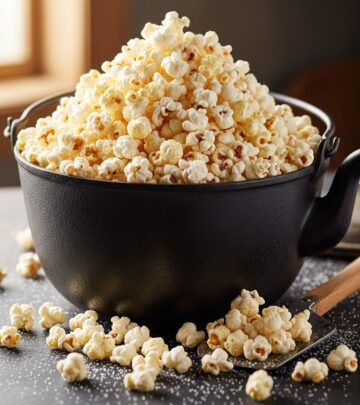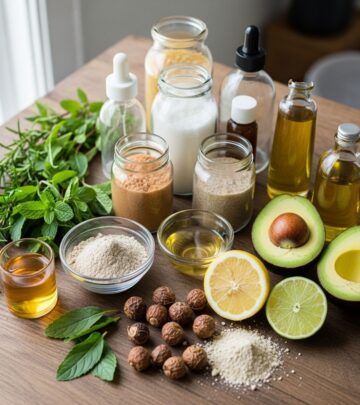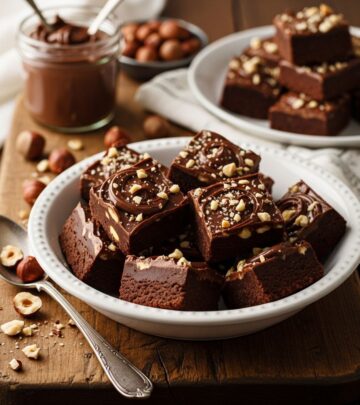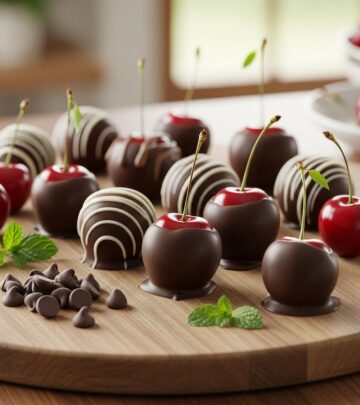El Diablo Cocktail: A Legendary Blend of Tequila, Ginger, and Cassis
Spice meets sweetness in a tequila highball that balances depth and effervescence.
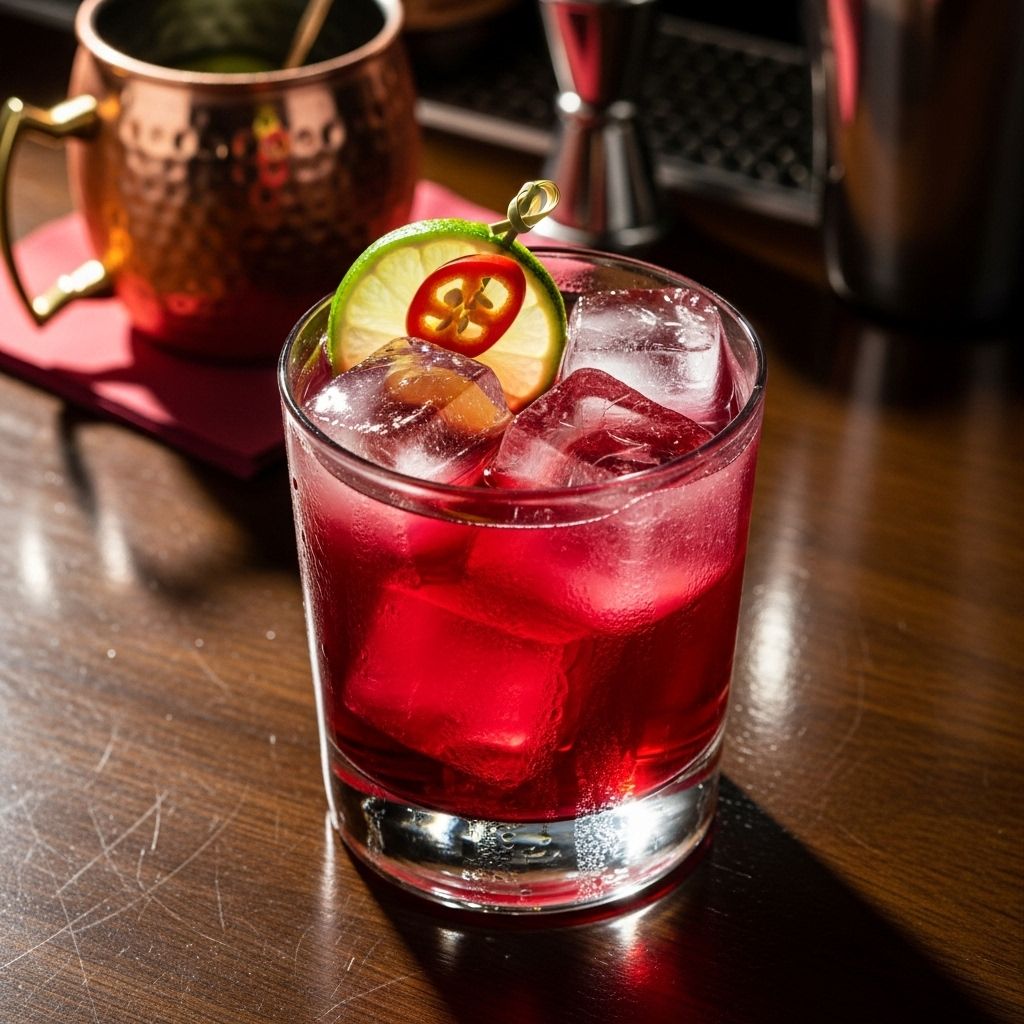
El Diablo Cocktail: Where Tequila Meets the Dark Side
The El Diablo cocktail has earned its place among classic tequila drinks, drawing enthusiasts with its devilish mix of spicy ginger beer, tart lime, and the lush fruitiness of crème de cassis. Despite its dramatic name—which translates from Spanish as ‘the devil’—El Diablo is more seductively refreshing than sinister, offering layers of flavor and craftsmanship in a tall glass.
Table of Contents
- Origin Story: How El Diablo Secured Its Place in Cocktail Lore
- Key Ingredients and the Architecture of Flavor
- Step-by-Step El Diablo Recipe
- Variations and Upgrades
- Expert Mixing Tips for the Best El Diablo
- Food Pairings and Occasions
- Common Problems and Solutions
- Frequently Asked Questions
Origin Story: How El Diablo Secured Its Place in Cocktail Lore
The El Diablo first appeared in the mid-20th century and was popularized by Victor “Trader Vic” Bergeron, a renowned American bartender and restaurateur famed for his tiki-style rum concoctions. Despite his rum legacy, Trader Vic introduced El Diablo to showcase tequila’s versatility, as early as 1946, in his influential cocktail guides. Its construction as a “long drink” mirrors classics like the Moscow Mule, but with Mexican spirit and French liqueur swapping places with their Russian and British counterparts.
While it’s sometimes called the “Mexican El Diablo,” its international roots—tequila from Mexico, cassis from France, and ginger beer with English colonial heritage—give the recipe an enticing global flair.
Key Ingredients and the Architecture of Flavor
What makes El Diablo iconic is its simple yet sophisticated ingredient interplay. Here’s a breakdown:
- Tequila: Blanco or reposado tequila delivers crisp agave notes. Reposado adds subtle oak; Blanco gives a brighter, peppery profile.
- Lime Juice: Freshly squeezed lime balances sweetness and sharpness—essential for harmony.
- Crème de Cassis: This French liqueur, made from black currants, brings deep berry fruit and sweetness. Substituting with Chambord or strawberry syrup is possible but alters the classic flavor.
- Ginger Beer: Spicy and effervescent, ginger beer lifts the drink and adds zest. It’s crucial to use quality ginger beer, as ginger ale often falls flat in complexity.
| Ingredient | Role | Recommended Brands/Types |
|---|---|---|
| Tequila (Blanco or Reposado) | Main spirit, agave backbone | Milagro Reposado, Don Fulano Blanco, Espolon Blanco |
| Lime Juice | Sour balance | Freshly squeezed only |
| Crème de Cassis | Black currant, sweetness | Giffard, Lejay-Lagoute, Jules Theuriet |
| Ginger Beer | Spicy, effervescent lift | Fever-Tree, Reed’s, Bundaberg |
| Garnish (lime wheel, twist, candied ginger, cherry) | Aroma, color | Optional |
Step-by-Step El Diablo Recipe
The El Diablo is approachable for novice bartenders yet rewarding for those who appreciate nuance. Here’s the classic process, refined from expert sources and traditional recipes:
Classic El Diablo Recipe
- 1.5 oz (45 ml) tequila (Blanco or reposado)
- 0.5 oz (15 ml) freshly squeezed lime juice
- 0.5 oz (15 ml) crème de cassis
- 3 oz (90 ml) ginger beer, chilled
- Ice (cubed or crushed)
- Garnish: lime wheel or twist; optional candied ginger, cherry
Instructions
- Add tequila, lime juice, and crème de cassis to a cocktail shaker filled with ice.
- Shake for 5-10 seconds until well chilled and diluted.
- Strain into a highball or Collins glass filled with fresh ice.
- Top gently with ginger beer—pouring slowly preserves fizz.
- Garnish with a lime wheel, lime twist, or inverted lime rind and, if desired, a candied ginger or cherry.
Variations and Upgrades
The El Diablo’s simplicity begs experimentation, and seasoned bartenders have refined it in several ways:
- Reposado vs. Blanco Tequila: Use reposado for deeper vanilla and caramel notes; Blanco for sharper agave and citrus.
- Substitute ginger ale for ginger beer: Ginger beer provides greater spice; ginger ale creates a milder drink.
- Fruit Liqueur Alternatives: Swap cassis for Chambord (black raspberry) or a homemade berry syrup—just note the flavor divergence.
- Interactive Garnish: Some bartenders invert a squeezed lime rind, fill it with cassis, and place atop the glass—letting guests “tip in” the cassis for a visual, flavor-evolving experience.
- Fresh ginger infusion: Make your own ginger syrup or fresh ginger beer for added zing.
Expert Mixing Tips for the Best El Diablo
- Shake first for texture: Shaking tequila, lime, and cassis together aerates and blends flavors more thoroughly than stirring or building in the glass.
- Preserve effervescence: Gently pour ginger beer over the top—avoid stirring vigorously to keep bubbles.
- Chill your ingredients: Use pre-chilled ginger beer and glassware to ensure the drink stays lively and cold.
- Fine-tune garnish: Lime wheel or twist adds aroma; candied ginger or cherry elevates visual appeal and complements the flavors.
- Quality matters: Use premium tequila and genuine crème de cassis for best results. Artificial or overly sweet imitations dull the cocktail’s elegance.
Food Pairings and Occasions
El Diablo is as versatile as it is captivating—the spicy highball pairs with a spectrum of dishes:
- Mexican-inspired fare: Grilled tacos, ceviche, or spicy guacamole accentuate the agave and ginger spice.
- Rich proteins: Roasted pork, lamb, or duck benefit from the tart fruitiness and ginger heat.
- Summer gatherings: The cocktail’s long-drink format and effervescent profile make it perfect for backyard parties, poolside sipping, or brunch spreads.
- Cinco de Mayo: El Diablo is increasingly celebrated as an alternative to margaritas for festive occasions.
Common Problems and Solutions
- Drink tastes flat: Use chilled, robust ginger beer—and always add it just before serving to maximize bubbles.
- Overwhelming sweetness: Reduce crème de cassis, increase lime, or use a drier ginger beer.
- Weak tequila flavor: Choose a tequila with pronounced agave character and avoid over-diluting with ginger beer.
- Sourness dominates: Balance lime with slightly more cassis or switch to a smoother reposado tequila.
- Unbalanced acidity: Ensure lime juice is fresh, not bottled or dehydrated, which can skew acidity harshly.
Frequently Asked Questions (FAQs)
Q: Can I make El Diablo ahead of time for parties?
A: Mix tequila, lime, and cassis in advance and chill. Add ginger beer just before serving to preserve carbonation.
Q: What is the best tequila for El Diablo?
A: A high-quality blanco or reposado tequila with pronounced agave notes is preferred. Avoid heavily aged (añejo) tequilas, which mask the drink’s brightness.
Q: Is there a non-alcoholic version?
A: Substitute the tequila and cassis with hibiscus syrup and more lime juice, or use a non-alcoholic spirit and black currant syrup.
Q: Does El Diablo contain any bitters or additional spices?
A: The classic recipe does not; however, some modern riffs incorporate orange bitters or muddled jalapeño for added complexity.
Q: Can I use bottled lime juice?
A: Fresh is essential for the right flavor and balance. Bottled lime is typically too sour/processed.
Conclusion: The Devil’s in the Details
The El Diablo stands as one of the tequila world’s most elegant long drinks—a testament to the harmony of Mexican agave, French black currant liqueur, and the universal zest of ginger beer. Whether enjoyed in a classic build or with inventive garnishes, mastering the El Diablo provides a canvas for creativity and refined refreshment. Choose premium ingredients, balance your proportions, and let this devilishly delightful cocktail add sophistication to any gathering.
References
- https://www.grouchy-bartender.com/cocktails/blog-post-el-diablo
- https://www.anderserickson.com/how-to-make-an-el-diablo-cocktail
- https://vinepair.com/cocktail-college/el-diablo/
- https://www.theinfatuation.com/cocktails/c/cocktails-how-to-make-an-el-diablo
- https://jeffreymorgenthaler.com/el-diablo-celebrate-cinco-de-mayo-with-this-tequila-cocktail/
- https://www.brewdrkombucha.com/blog/dr-diablo-cocktail-recipe
- https://elevatedcraft.com/blogs/cocktail-recipes/el-diablo
Read full bio of medha deb

